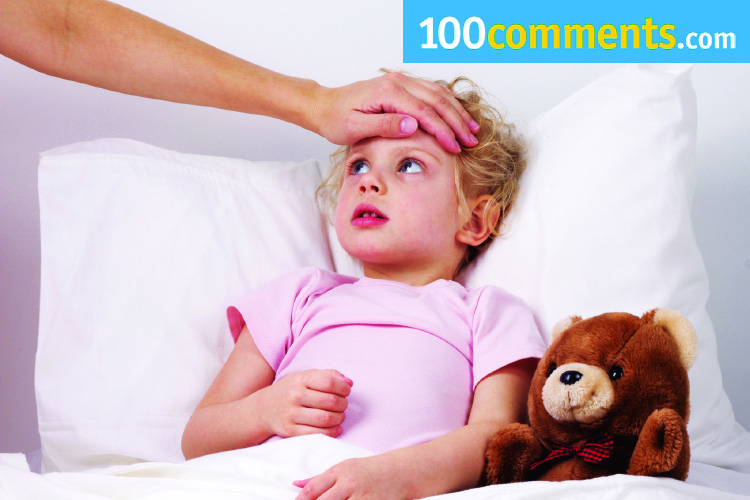}What can a pregnant mom do to ensure that the products she uses on herself does not adversely affect the wellbeing of her unborn child, and are there any precautions she should take in shopping for skincare for future use on her baby too?~
When a woman is pregnant her body is going through immense changes to support the growth of a human. Her immune system is altered also and things she may not have considered when she wasn’t pregnant such as dietary requirements are now something she may not take for granted. An expectant mother has a lot to think about already and by no means should she enter her pregnancy fearful of everything, but she should be looking at making sustainable and healthy lifestyle choices that she can implement during her pregnancy and beyond. While food and physical activities are common considerations during pregnancy – we tend to forget that skincare and cosmetics are also a significant part of a woman’s life.
Every pregnant woman in America for example has at least 43 different chemical contaminants in her body. It is cited by the National Cancer Institute of America report that “to a disturbing extent, babies are born ‘pre-polluted’”. This statistic would be comparable to other parts of the world where cosmetics and skincare are readily used and available. Exposure to toxic chemicals during pregnancy and lactation is everywhere and knowing what to avoid can be difficult.
Off-the-shelf skincare and bodycare products can host a cocktail of ingredients which can easily penetrate into your skin and may have long term ramifications on our health, together with known and unknown effects on the health of your baby. There are a few tips to consider when considering a skin care routine for yourself:
Certified Organic products. A cosmetic product being certified organic by a reputable certifier.
Ensure you know what percentage of your cosmetic is certified organic and what the remaining ingredients are. A fully transparent company will list all of these details on their packaging and will have a certification number which you can verify with the certifying body.
A cosmetic to be certified organic must have over 70% organic ingredients and the rest of the ingredients must be naturally sourced. This again will be listed on the packaging by a company that is certified organic by a reputable body.
Be mindful of strong essential oils during pregnancy. Speak to a qualified aromatherapist.
In terms of products for your baby. Their skin, unlike adults, is learning to adapt to the outside world. This takes time but it leaves your baby’s skin vulnerable and prone to the penetration of what you apply on your baby. The correct PH balance products are essential for your baby’s skin too. Your newborn baby does not require much in terms of products. However, ensure that what you choose to use are products which do not use synthetic and harsh chemicals. You can be reassured by choosing quality certified organic baby products using the same guidelines that you would buy your own organic skin care. The price point may be slightly higher but often your organic baby care products will last a lot longer because you are opting for quality not quantity.
}My three year old seems to be catching some sickness or another from the playschool she goes to and it has become a frequent thing. Ever since she joined these biweekly classes, she is always having a cough, a cold or flu. How can I minimize these incidences or shorten the duration of her illnesses?~
It is common for children to catch a cold, cough and flu during their childhood period especially if they are exposed to a crowded and confined environment such as a kindergarten, play school or day care center at this very young age. While this is helpful in the process of building their immune system, too frequent episodes of such illnesses may impede their learning ability and growth as well.
Therefore, in order to minimize these incidences, it is advisable that both parents and school caregivers take their own responsibilities to prevent transmission of harmful organism by notifying each other whenever their children or staff are unwell, practicing good hygiene, ensuring good ventilation and encouraging outdoor activities in between classes. It is also important for each school to initiate strict screening program to identify those children or staff who are unwell and direct them towards proper medical attention.
The younger your children, the more prone they are to infection due to weaker immune systems. Exclusively breastfeeding your babies for the first 6 months of their life has been proven scientifically to strengthen their immune systems during their childhood period. Vaccinations also play a vital role in protecting your children from vaccine-preventable diseases by stimulating their immune system to be ever ready to fight any potential harmful organism from their surrounding.
Therefore, it is important to make sure that your children’s vaccination schedule is always up to date and that they include the optional vaccines such as influenza jab that prevent against common cough and cold. Other tips on how to strengthen their immune systems include making sure your children are on a healthy diet, are practicing good personal hygiene, have a balance between indoor and outdoor activities, have adequate rest and sleep, as well as exercising regularly. Do seek medical attention and advice for further information about vaccinations and ways to strengthen your children’s immune system.
















